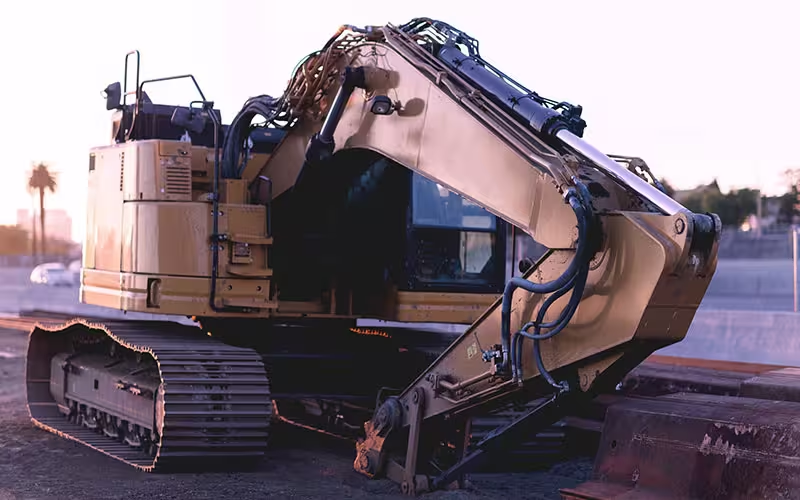For Commercial Construction Coordination Tulsa, see our main page here or call us at 918-695-9461.
Understanding Commercial Construction Coordination
Effective commercial construction coordination ensures projects run smoothly, stay within budget, and meet schedules. Managing multiple contractors, vendors, and timelines is complex, but with proper planning, every phase can align seamlessly. Commercial projects involve multiple trades working together, and miscommunication can lead to delays or costly errors.
Key Elements of Commercial Construction Coordination Tulsa
Ensuring successful Commercial Construction Coordination Tulsa requires paying attention to essential components such as scheduling, budgeting, safety, and compliance. The following factors play a vital role:
- Project Planning: Establishing clear timelines and assigning responsibilities to various teams ensures the project progresses efficiently.
- Vendor and Subcontractor Management: Coordinating with plumbers, electricians, and carpenters requires precise scheduling to prevent workflow disruptions.
- Safety and Compliance: Commercial projects must adhere to OSHA standards and local building codes, reducing potential liabilities.
- Budgeting and Resource Allocation: Managing costs efficiently ensures financial stability without compromising quality.
- Communication and Documentation: Keeping all stakeholders informed prevents misunderstandings and reduces unnecessary setbacks.
Common Challenges in Commercial Construction Coordination
Even with meticulous planning, commercial construction coordination presents several challenges. Addressing these obstacles early can prevent significant disruptions:
- Unexpected Delays: Weather, permit approvals, or supply chain issues can hinder progress.
- Labor Shortages: Skilled labor availability affects project deadlines and quality.
- Budget Overruns: Poor forecasting or unexpected costs can strain finances.
- Communication Gaps: Misunderstandings between teams can lead to costly errors.
To mitigate these risks, project managers must implement proactive strategies, such as regular progress meetings, construction management software, and clear contingency plans.
Technology’s Role in Commercial Construction Coordination Tulsa
Modern technology enhances efficiency in commercial construction coordination by streamlining communication, improving project tracking, and reducing manual errors. Common tools include:
- Project Management Software: Platforms like Procore or Buildertrend help contractors manage schedules, documents, and workflows.
- Building Information Modeling (BIM): BIM improves coordination by allowing teams to visualize structural elements before construction.
- Drones and 3D Scanning: These technologies provide real-time progress updates, ensuring quality control.
- Automated Scheduling Tools: AI-powered software predicts workflow efficiency and prevents bottlenecks.
Best Practices for Seamless Coordination
Experienced project managers recommend incorporating best practices to optimize commercial construction coordination efficiently. Here are foundational strategies:
- Develop a Detailed Timeline: Breaking the project into phases ensures tasks stay on track.
- Use Clear Communication Channels: Regular updates and structured reporting reduce misunderstandings.
- Monitor Project Milestones: Setting checkpoints helps detect delays early.
- Maintain Contingency Plans: Preparing for unexpected events minimizes disruptions.
Industry Trends Influencing Commercial Construction Coordination Tulsa
The construction industry constantly evolves, impacting commercial coordination methods. Some emerging trends include:
- Sustainable Building Practices: Green construction techniques, such as energy-efficient materials, are becoming standard.
- Modular Construction: Prefabricated materials speed up timelines and enhance cost savings.
- Increased Automation: Machines and robotics assist in reducing manual labor costs.
- Improved Safety Measures: Wearable tech monitors worker health and reduces site hazards.
Keeping up with industry advancements ensures construction firms remain competitive and deliver high-quality results.
Benefits of Professional Commercial Construction Coordination Tulsa
Working with experienced professionals enhances coordination and minimizes project risks. Some benefits include:
- Efficiency: Streamlined workflows reduce delays.
- Cost Savings: Avoiding rework and managing budgets properly prevents excess spending.
- Quality Assurance: Expertise ensures the highest construction standards.
- Regulatory Compliance: Guidance with permits and legal requirements eliminates costly fines.
Frequently Asked Questions
How early should commercial construction coordination begin?
Construction coordination should start during the project’s planning phase to establish budgets, timelines, and resource allocation early.
What role do permits play in commercial construction coordination?
Permits ensure a project complies with zoning laws and safety codes. Delayed permits can significantly impact schedule timelines.
How does poor coordination affect commercial projects?
Inefficient coordination often results in delays, budget overruns, and miscommunication, impacting overall profitability.
What is the best way to manage multiple subcontractors?
Using specialized project management software and holding regular meetings keeps all subcontractors aligned with the project goals.
How can technology improve coordination efficiency?
Tools like BIM, scheduling software, and automated workflows enhance accuracy and communication between stakeholders.
Follow us on Facebook here.

